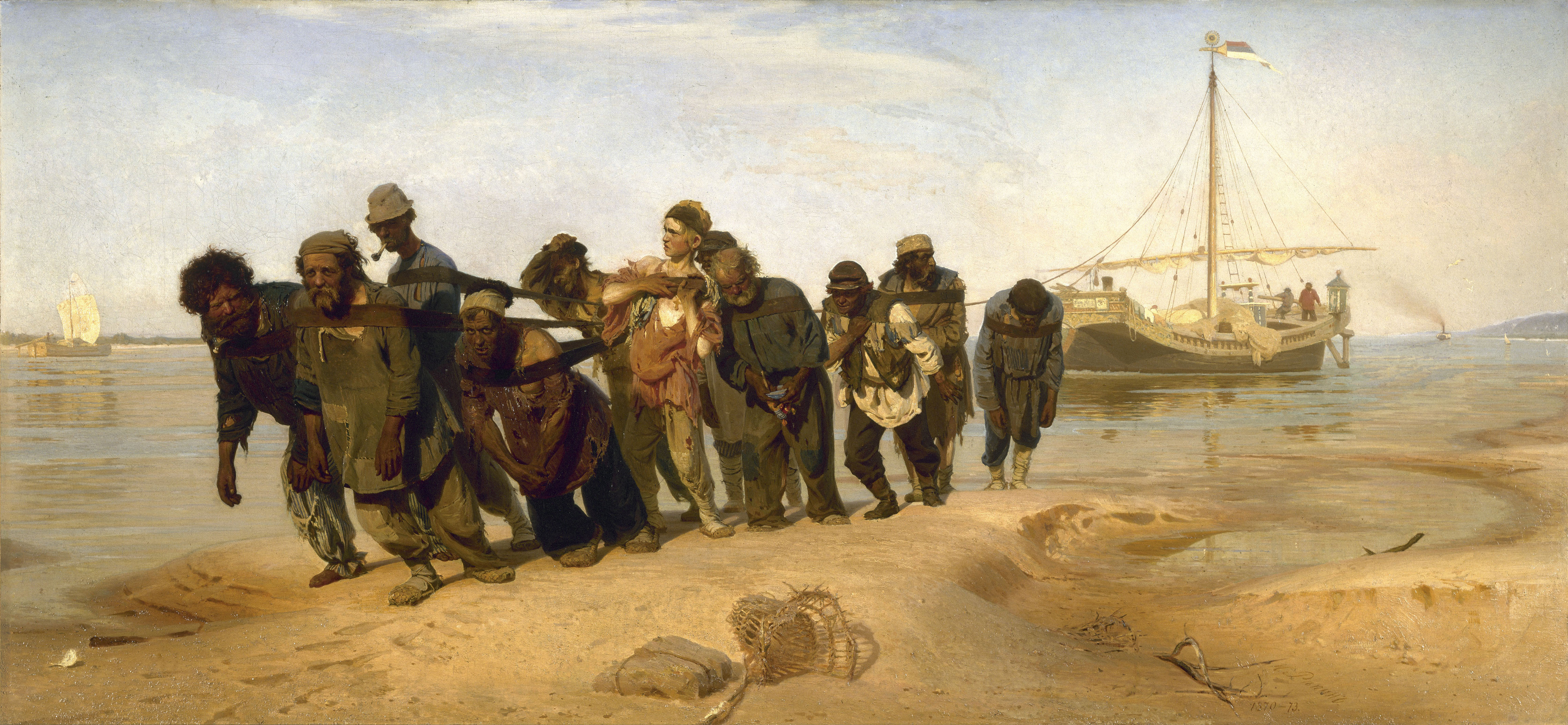
Ilya Repin was the leader of a group of Rusian painters called Peredvizhniki (the Wanderers). They aimed to portray the many-sided aspects of social life, often critical of inequities and injustices. People should be shown not as types, but as individuals. Attention should focus not so much on their external appearance, but on their inner life. All these elements are found in this painting.
The job of barge haulers was to tow boats upstream, hard and underpaid work that had to be done in groups. It is estimated that at the beginning of the 19th century half a million barge haulers worked in the Volga and Oki river system in Russia. As steamboats took over from sailing (in the painting you can see one in the distance on the right), their numbers declined steadily, and a century later they had all disappeared.
Repin makes sure all our attention is focused on the haulers, not only by putting them in the center but also by the use of color as the darker people stand out in their yellowish surrounding. What the haulers have in common is that they are all poor; just look at their clothes, torn and full of holes. But when you look at their faces and body posture they are all individuals. Just zoom in and look at them individually; try to imagine what their character is and how they deal with the hard work they are doing.
The writer Fjodor Dostoevsky who had seen the painting liked it because it showed “barge haulers, real barge haulers and nothing more”. At the same time, he considered this a weakness of this kind of immediate, realistic painting which he called ‘genre painting’. He preferred ‘historical painting’ which forced the painter to leave the immediate behind and introduce some form of idealization. By which he meant that to show reality it is sometimes necessary to idealize it. In a more contemporary context, this is what we regularly do by editing the photos we take on our phones; we ‘improve’ the real photo by applying filters and removing (or adding) elements to get a result that we feel is better than the original one.